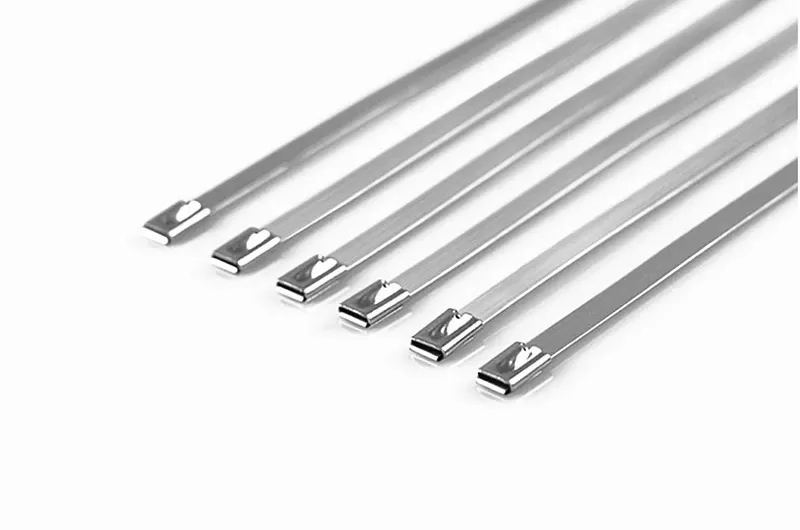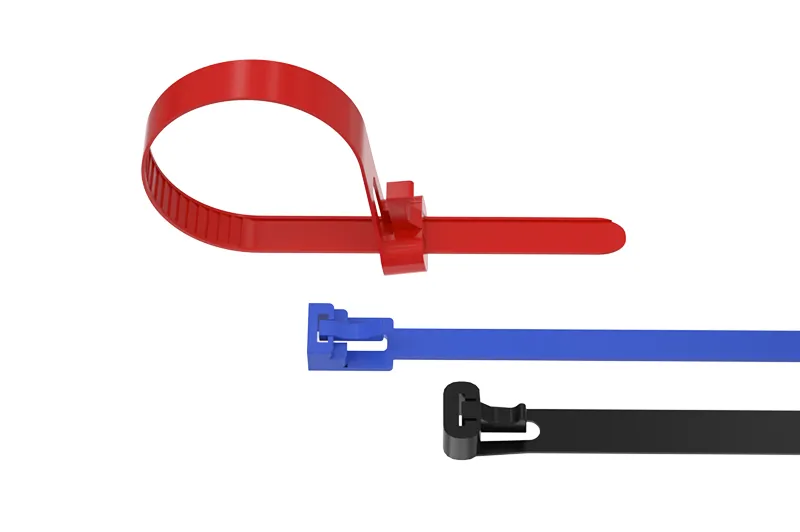Nylon vs. Stainlesss Steel Cable Ties - which is best?
Cable ties also known as zip ties, are essential tools for bundling and organizing wires, cables, and other objects. Two popular materials for cable ties are nylon and stainless steel. Each material has its own set of advantages and disadvantages. In this article, we will compare nylon and stainless steel cable ties to help you determine which is the best choice for your specific needs.
Strength and Durability: Nylon's Forte
Nylon Cable Ties
Nylon cable ties are widely known for their strength and durability. They are capable of withstanding significant tension and provide a secure and long-lasting hold. These ties are ideal for indoor use and applications where exposure to extreme weather conditions is minimal. Nylon ties are also resistant to corrosion, making them suitable for various environments.
On the downside, nylon cable ties may not be the best choice for heavy-duty outdoor applications or areas with exposure to harsh chemicals. Over time, exposure to UV rays can cause nylon to degrade, reducing its overall strength.
Stainless Steel Cable Ties: Unyielding Strength
Stainless Steel Cable Ties
Stainless steel cable ties are the epitome of strength and resilience. These ties are capable of withstanding extreme temperatures, harsh weather conditions, and exposure to chemicals. Stainless steel ties are often used in outdoor and industrial settings where durability is paramount. They are also resistant to UV radiation, ensuring a long lifespan even in direct sunlight.
However, stainless steel ties may not be as flexible as nylon ties, making them less suitable for applications where a high degree of flexibility is required. Additionally, stainless steel ties can be more expensive than their nylon counterparts.
Installation and Ease of Use: Nylon Takes the Lead
Nylon Cable Ties
Nylon cable ties are lauded for their ease of use and quick installation. They can be effortlessly tightened by hand and are available in various lengths and strengths to suit different applications. The flexibility of nylon allows for easy manipulation and adjustment, making them an excellent choice for projects that require on-the-fly adjustments.

Stainless Steel Cable Ties: Sturdy but Less Flexible
While stainless steel ties offer unparalleled strength, their installation can be more time-consuming and may require the use of specialized tools. The rigid nature of stainless steel makes them less flexible during installation, which can be a drawback in certain situations. However, once installed, stainless steel ties provide a secure and unyielding hold.
Conclusion: Choosing the Right Cable Tie for Your Needs
In conclusion, the choice between nylon and stainless steel cable ties depends on the specific requirements of your application. If strength, durability, and resistance to harsh conditions are paramount, stainless steel may be the preferred option. On the other hand, if ease of use, flexibility, and cost-effectiveness are crucial, nylon cable ties may be the better choice.
Consider the environmental conditions, the level of tension required, and the installation constraints before making your decision. Both nylon and stainless steel cable ties have their merits, and choosing the right one will ensure a secure and reliable solution for your cable management needs.
If you need further assistance in choosing the right cable ties for your project, feel free to contact ZGS. As a leading cable tie supplier, we are committed to providing top-notch products and expert advice to meet your specific requirements. Make the right choice for your cable management needs by reaching out to us today.
If you are interested in sending in a Guest Blogger Submission,welcome to write for us!





Comments
0